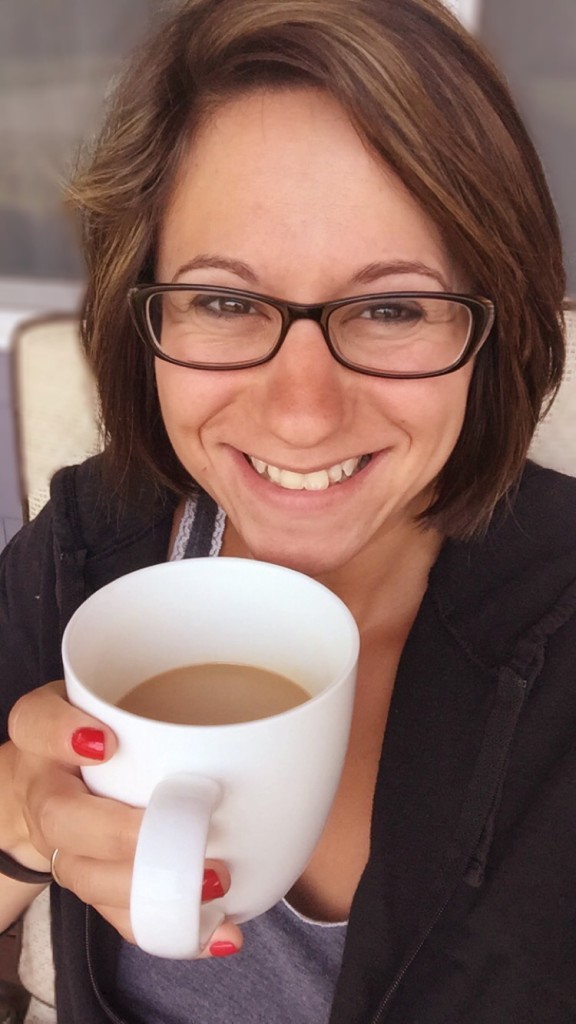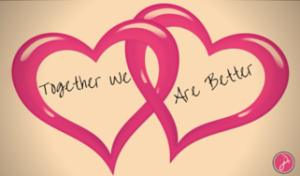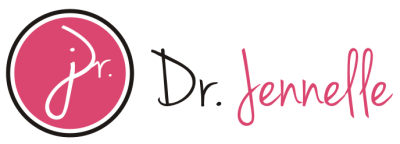I believe that commonalities unite us and differences define us. To yearn for connection and understanding is the human condition, but to serve our own unique purpose in this world is the human experience. We learn from one another in order to grow and develop, and we need each other to feel whole.
I have always enjoyed the people in my life who 90% of our conversations end in laughter and “OMG me too!” moments. But I appreciate and require those that continually make me remember that we are not all the same and we have a lot left to learn from each other. The people that challenge me with thoughts and behaviors vastly different from my own are equally as important to me as those that make me feel connected and known.
In truth, there’s always a little knowing in the differences and the commonalities are not always so comforting.
Perhaps one of the strongest ways I’ve experienced this is through following the work of Glennon Doyle Melton from Momastery. I connect with her on so very many levels, but perhaps one of her strongest identifiers is where we greatly differ. Glennon is a woman of incredibly strong faith, who believes completely in God and the way in which God loves us all just the way we are. People love her and resonate with this message so deeply.
But I am not one of those people.

I wasn’t raised with religion. My mother’s parents are Greek and all about tradition (mostly food), but not religion. My father’s parents are Catholic (and anyone who’s walked into their house knows this from the magnets on their fridge to the paintings and statues in every room). My father denounced religion after feeling oppressed by it for much of his childhood. As such, I grew up in a household founded on love and tradition, not on faith and spirituality.
As a child I had predominately Jewish friends and I would ask them what their holidays were about and would be intrigued by the history. I celebrated Christmas and Easter but really I had no idea why, it was rooted in family tradition only. In my high school freshman honors English class we read the bible as literature. This was incredibly controversial, but SO helpful to me. I finally knew what everyone was talking about.
And while I understood now where the beliefs came from, they didn’t resonate with me on any level. There seemed to be a lot of shame and punishment and rules created by those in power, and I had never been a fan of that. And then there was the whole “sin” of same sex relationships. That one really rubbed me the wrong way. So I understood the foundation but had no interest in accepting it as my belief system.
And so, I’ve struggled with how to approach faith with our children. I belief faith is complicated and complex and can only be fully understood when you’ve reached that precious part in development where you’ve been granted the skill of “critical thinking”. This is why I am a firm believer of exposure to all before a decision to one. I am open and happy for our kids to explore all the possibilities of faith – church with a friend, temple with a neighbor, etc. But the choice, oh that choice is so big, you really have to understand what it is your choosing. For as much as we believe that children can’t understand romantic love as adults do, I believe that children cannot understand faith in the same respect. I could never have formed the opinion I did in high school after reading the bible as a child in Sunday school. The comprehension of these unwieldy ideas is difficult, to say the least.
I’ve always been a logical and practical woman, driven by the wild ambition that lives in my heart. I believe that I have control over how my life turns out (us psychologists call that an internal local of control), and I find it harmful to trust that someone greater than you will fix your problems. I believe strongly that there are things that are out of our control, that happen without cause, and that it is how you choose to handle those experiences that matter most. I could never figure out how religion or any kind of faith could fit in with that, but I never really tried very hard to find out either.

Last night as I listened to Glennon talk, already familiar with her writing and connection to God, I was struck by how very similar I felt we were in our beliefs. In truth, it felt that if you just removed the word “God” and those pronouns associated with, our core belief system was the same. This was fascinating to me, but also a little confusing. I have found myself recommending Glennon’s work to so many in my life, and all who know me know that I am not a woman of faith. So I often would find myself “explaining away” that part of her work. Not in the sense that it wasn’t important or relevant, but to say “it’s really good writing [even though] there’s a lot of God talk.”
I believe a lot of that feeling of confusion comes from fear of what others think about my lack of faith. I fully understand why others have deep belief systems about God, and I have seen the power that this kind of faith can have during a crisis or trauma so many times that I have even felt jealous of the comfort it brings. But as I developed into the adult that I am today, I continually felt that it was my job to make things good for myself, no one else’s. And I was under the misconception that people went to God to ask for help, for a fix to their problems, and acceptance after their transgressions. I am sure there are people who use their faith that way, but I have learned that so many do not. What I have learned is that the only difference between my understanding and acceptance that some things are out of my control and that that is ok and I can be a good person even though I can’t control all of the outcomes…is that someone like Glennon has given a name to that understanding and acceptance, and that name is God.
Perhaps this goes back to my ultimate pagan core, where it seems to me that there are so many responsible for so much. You’ll hear me say to a sick friend, “I’ll pray to the health gods for a quick recovery!”, and mean it. Maybe it’s that the name “God” makes me uncomfortable to think that there is so much power given to one. And maybe that name is also all wrapped up in the old-school beliefs associated with it that have never resonated with me anyway. The church still equals oppression, discrimination, and shame in my mind, and I think it’s time I let go of that negative view. I know not all churches are as open as the Old South Church in Boston where Glennon spoke, but for those that feel as Glennon does and who came together last night, there are enough of you to remind me that there is nothing wrong, ignorant, or scary about having a belief system that brings you together in the walls of a church.
Last night, despite the fact that the only reason I have stepped through the doors of a church in the last 15 years has been for a wedding or a funeral, I felt like I was surrounded by my people. I immediately felt that the connection we all have to Glennon, to the belief that We Can Do Hard Things, and that all we have to do is just keep showing up, matters more than the name we give it. And so at the end of the day, if I am going to put my faith in anything, it’s in the belief that Together We Are Better.


I grew up Catholic and rejected the idea that i am less entitled due to my gender.
I then did Episcopal with first husband and when that ended I felt again uncomfortable.
I don’t want the rituals and rules that seem to come with a god.
And as a scientist, this idea of prayer as a wishing method for our team to win or someone to heal, it just didn’t ring true.
But I did feel a deep spirituality and believe in universal love and connection.The earth home as a classroom rings true, as well.
My now husband was raised UU. We don’t do much with that. He believes in God.
I think for me, God as great father doesn’t connect with me, I didn’t have a great father nor did most people I know (except my 2nd husband). And what’s with the gender attached there?
I came to believe that maybe there is a god and maybe there isn’t, but if there is a god I am sure s/he doesn’t care if I believe as that would be really petty. “You were a great person who gave and loved, but an atheist so I can’t be there for you.”
Last night, Glennon gave me new ideas to ponder. God as a loving being. All love. Nothing else. That might ring true.
Thanks for sharing this.
BTW – found you through an instagram shot from GDM’s site.
Thank you so much for sharing your thoughts Susan. I think for most of us, spirituality is a complicated evolution throughout our lifetime. The best is to find others to evolve with, I think. To me, Glennon represents the right kind of thinking, whatever it is called, it just seems good 🙂 I am so happy you reached me and hope you will continue to join my journey.